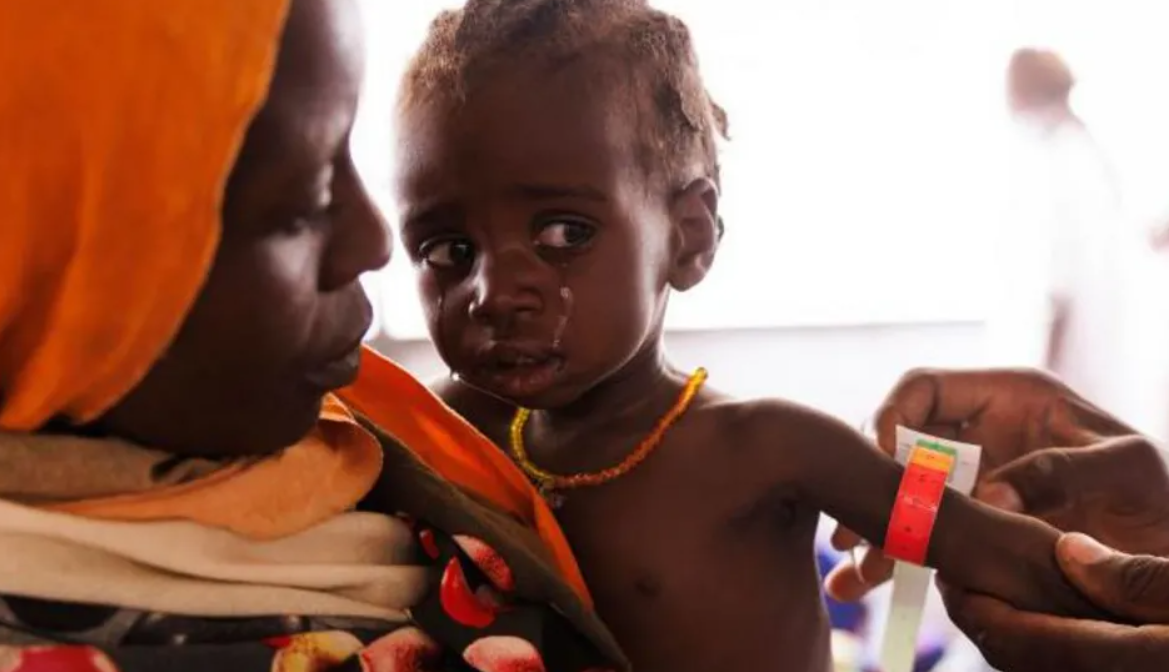Combating Starvation amid Sudan’s Humanitarian Crisis
Many residents, including Mohanad el-Balal, are struggling to avert a devastating famine in the center of Sudan. One picture, of Sadiq, a middle-aged father with thin legs extending in front of him while clutching his wheelchair, sticks out among the countless expressions of this predicament. Sadiq’s terrible tale serves as a stark reminder of the extent of starvation in Sudan; although he is not crippled, his lack of nourishment has rendered him unable to walk.
The UK-based Mohanad el-Balal is one of the co-founders of Khartoum Aid Kitchen, an organization that feeds tens of thousands of people in the capital of Sudan with food supplies. Sadiq had not eaten a healthy meal in more than a month and was giving his kids whatever food he could find when volunteers came across him. Sadiq’s situation is regrettably not unusual; innumerable people in Sudan endure comparable difficulties.
The Sudanese army and the Rapid Support Forces (RSF) have been engaged in a destructive fight in Sudan since April of last year. Over nine million people have been displaced by this horrific war, which has affected every inhabitant in some manner. Expert on food security Timmo Gaasbeek estimates that by September, 70% of people may be severely hungry, which might result in millions of fatalities. Though beneficial, the existing food distribution initiatives are far from meeting the enormous need.
Sudan’s economy has been severely damaged by the war, leaving many people unable to afford food. Food imports have been significantly reduced as a result of the RSF’s grip over Gezira state, Sudan’s largest agricultural region, and skyrocketing inflation, according to veteran human rights activist Amgad al-Farid. As such, food is not just in short supply but also unreasonably expensive.
Looting during the fighting has destroyed houses and businesses, making the situation worse. Prices in Omdurman, a portion of the capital governed by RSF, have increased by 400%. Local resident Ahmed describes how many eat once a day, if at all, these days. A few months ago, when food was being offered for cheap, the situation was not as grave. These days, families are forced to stretch a single meal over two days due to the scarcity of even basic essentials like lentils.
Food kitchens, such as those operated by Khartoum Aid Kitchen, are frequently the only lifeline for individuals in need, as humanitarian aid rarely reaches them. However, these kitchens are having trouble keeping up with depleting resources. People are starving to death in areas like Darfur, Kordofan, and Gezira as a result of the crisis, which goes beyond Khartoum.
Some people in the Nuba mountains survive by boiling leaves, according to Ayman Musa of the South Kordofan and Blue Nile Coordination Unit. The head of the UN Office for the Coordination of Humanitarian Affairs (OCHA) in Sudan, Justin Brady, bemoans the lack of financing and attention from other countries. Less than half of the nearly $2 billion in pledges made at a summit in Paris in April were designated for humanitarian relief in Sudan, much of which has not yet been delivered.
The number of people leaving Sudan has increased as well; hundreds of thousands are now fleeing to neighboring Chad. Since both sides of the conflict use malnutrition as a weapon, many Sudanese feel abandoned by the international world. According to Alex de Waal of the World Peace Foundation, the RSF is a “looting machine,” robbing resources to fund its operations while the SADF purposefully starves areas under its control in order to apply pressure.
The situation on the ground is dire despite denials from both sides. The people of Sudan are trapped in the crossfire of starvation, which is a weapon of war. If there isn’t a halt to the fighting and a significant humanitarian effort, things will only get worse and millions of people will lose hope.















